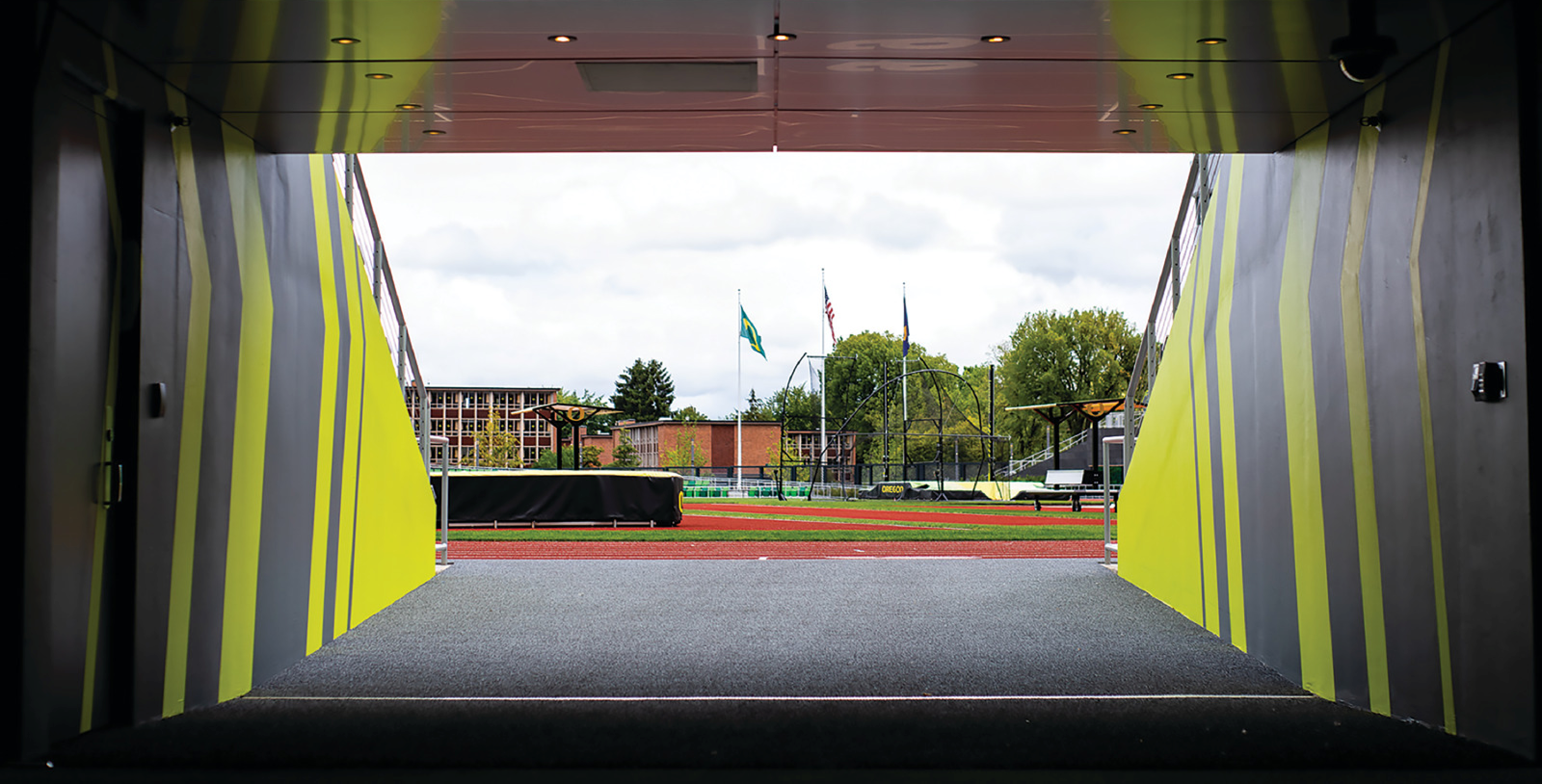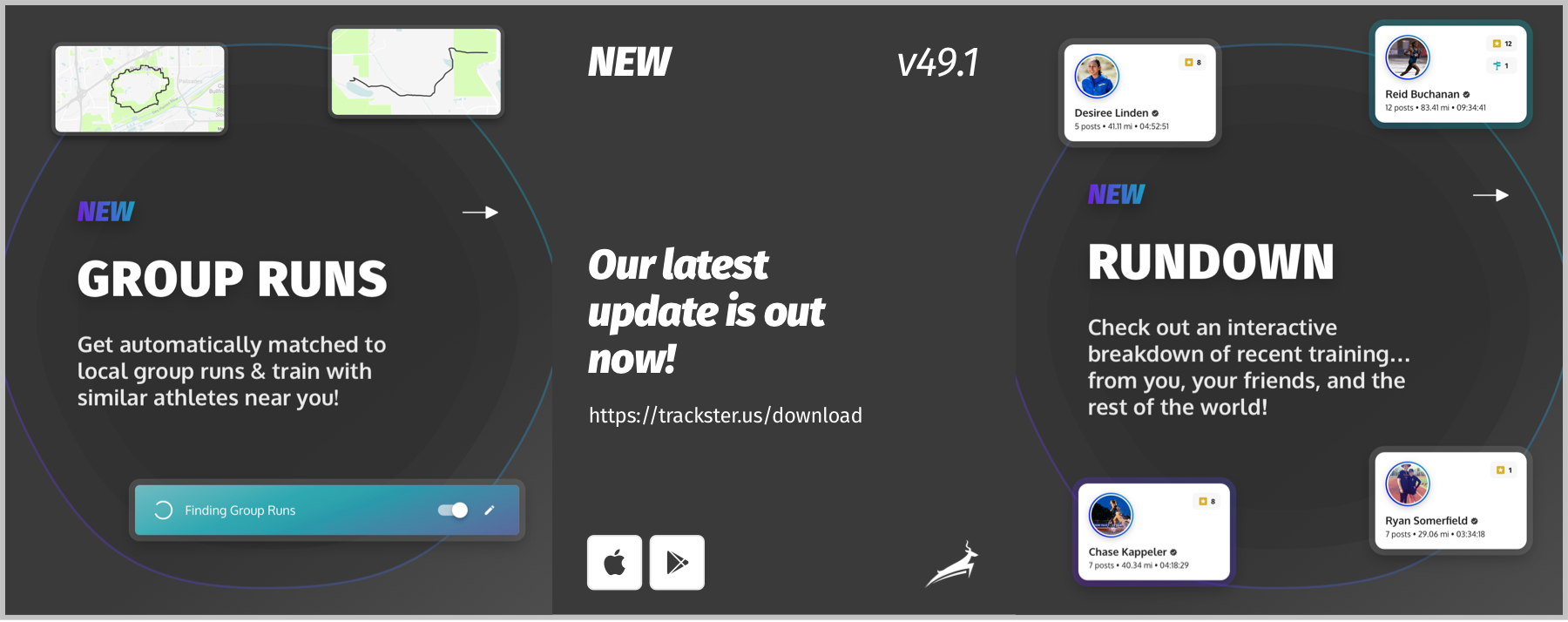News & Tips•June 11, 2021, 8:18 p.m. • 41
Why Even Keep A Training Log?

Why Even Keep A Training Log?
It's crazy to us at Trackster that this still not common knowledge and that many people do not yet see the immense benefits to keeping a training log. But, because this is basically the foundation of our entire platform, we thought it would be a good idea to take a moment to lay out the entire argument as to why athletes of all types should keep some type of training log. There are really many more reasons beyond this list but these, we feel, are the main points of foundation. Be sure to reach out with any additional thoughts why you like to keep a log!
1. It's Evidence Of Preparation
Let's start with a hypothetical. In this scenario we'll pretend you've been using the ultimate free training app - Trackster - to keep track of your daily training sessions with distance, time, effort, etc. It's okay to use a paper log or whatever you're most comfortable with most, though, the point is that you keep some record of any kind of your daily grind.
So, let's imagine you're about to run your first ever 5K race. It's the night before and you're having a cup of tea before bed. You're nervous, and excited, because tomorrow is the race. The big day. You're going through the race and experience in your head over and over. You're about to wake up and put yourself on the line and push to run 5000 meters as hard as you can.
You can't help but have an unsettling feeling that you may not be all that ready for it. What if things go wrong? What if your legs give out and you can't make it? Lucky for you, you've kept a training log. In this moment of anxiety and doubt that truly every single athlete will face, you can reflect and browse your training log and data to remind yourself of all of the hard work you've put in to prepare for this effort. Your log will serve as an undeniable record and proof that you are indeed ready to run well in the impending 5000m. On Trackster, you can scroll your profile or view your Insights page for overall breakdowns of all your hard work.
The training log allows you to combat this anxiety with cold hard evidence. You can go into the race with complete confidence and peace of mind that you are indeed ready.

UA Dark Sky Distance Pro Runner - Brandon Doughty's stats
2. Writing Is Powerful
Any runner who keeps a log of any kind will tell you that it implicitly affects the way they train. After getting into the routine of saving their training, an athlete will be subconsciously begin to think about how their log will sound and appear while doing the actual training. Because the athlete wants to have a positive entry in their log or on their profile, it incentivizes the athlete to make the training as successful as possible. The habit of logging everyday encourages a positive outlook, too.
There's evidence through scientific research that shows that the simple act of writing and reflecting can strengthen one's immune system and ability to fight diseases. For any runner, this would be obviously helpful!
Also, when an athlete does inevitably have a bad day of training, the sometimes uncomfortable but important act of logging it no matter what is crucial. The simple exercise of reflecting on what went wrong during a run or workout and pondering how it could've gone better turns what would be a negative day into a positive learning experience. Without actually writing it out, the athlete is prone to repeating their mistakes and missing the lessons in what appeared to be a failure.
More evidence also suggests it's quite possible that the act of writing helps people recover from injury faster! This could mean then that even injured athletes who are cross training or taking time off to recover would benefit from positing something on their training log on a daily basis.
3. Being Social Makes A Big Difference
The daily grind of training can be really difficult even for the most blessed athletes. Putting in hours of hard work and exercise every week can take a toll over short periods of time and lead to serious injuries and burnout.
The final component as to why keeping a training log is so important is because it helps makes things more fun. With Trackster, for example, we focus on the social aspect. Athletes can post training with photos and leave comments / likes for their teammates and training partners to feel encouraged and excited. Coaches can quickly browse their athletes to make sure they're on track and up to date with their training. Athletes have told us that they feel the positive effects of seeing their teammates hard work and get inspiration especially in times like summer break when they're totally on their own to keep training.
There's ample scientific evidence that supports this idea. Athletes who are aware or engaged with a social component to their exercise are much more likely to be consistent over time. One study says that building an extra big network or team on Trackster is a great idea...
"The larger the network, the larger the social influence becomes, the more recognition one receives and the more people benefit from the reciprocal social behaviour." Source
While we don't necessarily want our community to be out there running and logging their training strictly for the clout, it seems that a training app like Trackster has a unique opportunity for positive impact. Most social media apps inherently encourage a narcissistic and unhealthy behavior but, with Trackster, users first have to exercise to receive the sought after positive reinforcement from their followers.
Conclusion
There's a ton of different options when it comes to choosing a training log. Of course there's the old-school pen and paper method as well as a number of (subpar) other platforms out there.
While we're slightly biased, we strongly recommend using the free Trackster app to keep track of daily training. The entire app and experience was designed with the concepts of this blog at the forefront of our mind.
The entire purpose of Trackster is to serve runners and coaches by making their daily training process as easy and as affordable as possible. We leave the hard stuff, the actual training, to you and we take care of the rest!
















